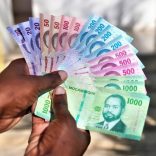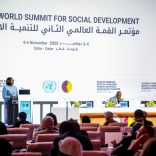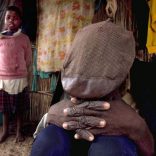Mozambique: Bank credit grew 17% in six years to 3.631 billion meticais in 2023
Mozambique: Metical outlook should subdue inflation – Standard Bank
7:02 CAT | 22 Mar 2021

File photo: Folha de Maputo
19 March 2021
- A more constructive outlook for the metical is developing, which should improve the inflation outlook – despite risks remaining elevated.
- The Jan 300 bps MIMO rate hike, currently at 13.25%, pushed the banking system prime lending interest rate to 17.8%. This, combined with better administration of FX liquidity, may support the metical and therefore keep inflation in single digits – given subdued aggregate demand and strong FX gross reserves at USD4bn (covering more than 6-m of imports, excluding the large projects imports).
- Indeed, the Bank of Mozambique (BOM) MPC might have taken this view in leaving policy rates unchanged this week.While acknowledging that the risks remain elevated, the committee announced a downward revision in their inflation forecasts. However, the BOM again did not disclose their inflation forecasts.
- Our base case now sees the USD/MZN pair heading towards the 65 level by year-end, trading at 72.4 at the time of writing, which is 3.3% lower ytd and up by 8.6% y/y. In our bull case, the metical strengthens to 62.7; our bear case sees it closing the year at 67.4.
- Indeed, we have downwardly revised our year-end inflation forecasts, ranging from 5.9% y/y in the bull scenario, to 7.6% y/y in the base case and 9.7% y/y in the bear case. Our base case forecasts indicate that inflation, last reported at 5.1% y/in in Feb, should peak at around 8.2% y/y in Sep and then start easing.
- Our base case sees BOM keeping policy rates unchanged this year. In real terms, policy rates in Mozambique are already the highest in the region.
- While elevated real interest rates may see a slower recovery in GDP growth, the options seem limited if sustained macroeconomic stability is to be achieved given Mozambique’s structural fragilities and the grip of the pandemic.
- Our base case still sees GDP growth at 1.6% y/y for 2021, accelerating to 2.9% y/y next year, from a contraction of 1.3% y/y in 2020.
- The Standard Bank Purchasing Managers Index (PMI) for the first two months of the year was below the 50-benchmark, at 49.1 in Feb, from 47.5 in Jan, implying that the economy had remained in recession in Q1:21. The PMI has dwelled below 50 since Mar last year when the first cases of Covid-19 were recorded, with resultant social restriction measures.
- We reiterate that both the response to the pandemic as well security challenges will put pressure on public finances, with the monetary data survey for Jan highlighting an uncomfortable acceleration of net lending to the government, to MZN94.1bn, up by 261.8% y/y, from MZN86.6bn Dec 20.
- Government borrowing may be crowding out private sector credit. Growth in private sector lending in local currency eased to 9.3% y/y in Jan, from 10.1% y/y in Dec, with foreign currency lending decelerating to 7.8% y/y, from 16.3% y/y.
- Local currency money supply (M2) growth accelerated to 21.3% y/y in Jan, from 18.6% y/y last Dec, likely largely reflecting the impact of public sector because both private sector credit and business activity have remained subdued.
- Progress on the military campaign addressing insecurity in the northern province of Cabo Delgado, which has started to see people returning to their homes, could lift sentiment — especially if followed by an acceleration of the implementation of Rovuma Basin natural gas projects.
- Another positive development this week was government approving an addendum to the Mozambique LNG project, which reflects the leadership of Total in the project, following the sale from Anadarko in 2019. The government also took note of a change in the funding structure of the project to reflect the USD15.5bn project financing secured last year, with draw-down of the facilities expected at any moment.
- After a year of no classes due to the pandemic, students are now returning to school, which too should lift sentiment. While access to education remains critical to developmental goals, a shift towards quality education would be crucial to enable more inclusive growth in Mozambique.
- Most of African countries, including Mozambique, are seeing an easing of the second wave of Covid-19 infections.
- The WHO has nevertheless advised ongoing social distancing measures and faster vaccination to curb the expected third wave.
Central bank policy interest rate (real = nominal – inflation)

FX rate

GDP growth

By Fausio Mussa
Source: Standard Bank Mozambique / Africa Flash Note
Show comments
Also read













Leave a Reply
Be the First to Comment!
You must be logged in to post a comment.
You must be logged in to post a comment.